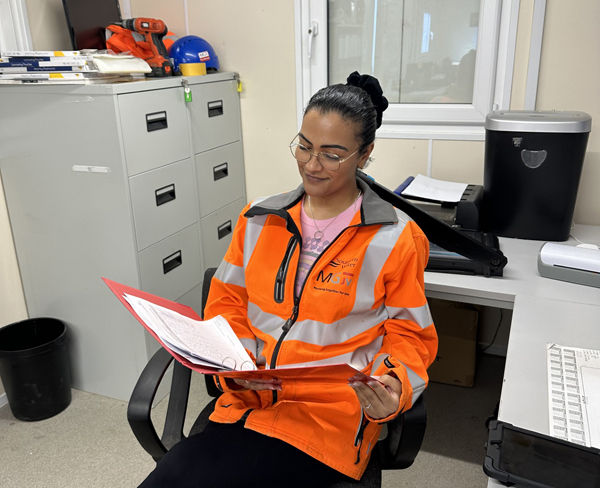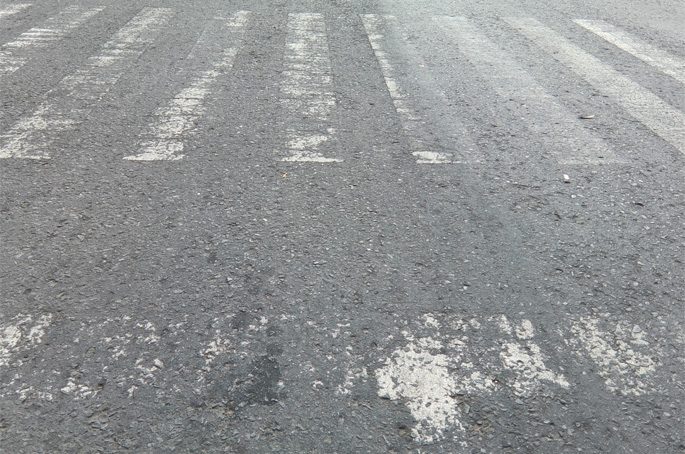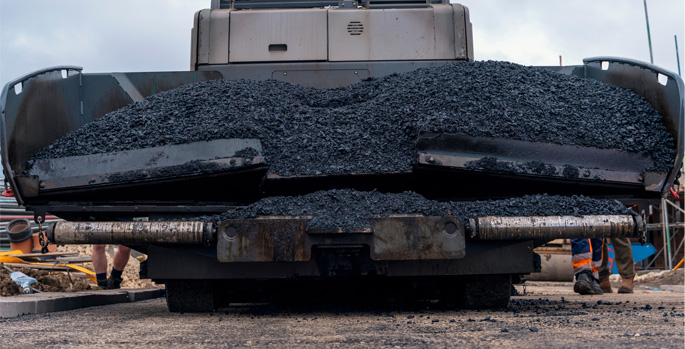Highways speaks to Katherine Rendon, street works co-ordinator at Morrison Water Services and Galliford Try Joint Venture (MGJV), and winner of last year's Street Works UK Rising Star award.
What are the main challenges to working in street works and what are the parts you enjoy the most?
Working in the street works sector has been an incredibly rewarding experience, and the career continuously offers learning and growth opportunities. Winning the Street Works UK Rising Star award last year was a pivotal moment in my career, as it motivated me to take on greater responsibilities and leverage advanced technologies, like ArcGIS - a cloud-based mapping and analysis solution, to effectively manage and track street works activities.
However, it also comes with its own challenges. It's well known that street works can cause frustrations for the general public – minimising disruption and effectively communicating timeframes for works are vital, but can be tricky. In my role it is important to balance the need for fast completion rates with safety and compliance and this requires meticulous co-ordination, adaptability and swift problem-solving.

Ms Rendon receiving her award with former transport minister Andrew Jones (left) and Street Works UK CEO Clive Bairsto
Additionally, co-ordinating between the different street works stakeholders, utility companies, local councils and contractors, adds complexity and aligning differing priorities, schedules and approaches can be difficult. Effective communication is important to overcome some of the challenges that the large stakeholder matrix presents.
Despite these challenges, the sector's dynamic nature and the opportunity to positively impact wider society make it a deeply fulfilling field to work in.
What types of projects do you typically work on?
I currently oversee all street works activities for the Thanet Sewers Rehabilitation Scheme on behalf of our client, Southern Water. This project represents a significant investment of approximately £100m between 2010 and 2025.
The scheme is primarily focused on maintaining the integrity of sewers, reducing the risk of flooding, and protecting both the environment and the chalk aquifer that covers much of the Kent-based region. This vital infrastructure work not only safeguards local communities but also supports the long-term sustainability of the area's natural resources.
Do you experience any specific challenges because you are a woman and if so what are they and what action can be taken to support you?
While historically issues such as gender bias and stereotypes have affected the industry, like all male-dominated sectors, it continues to make progress towards greater inclusivity.
What advice would you give to young women coming into the sector?
My main advice would be to find strength in your uniqueness. It is important to have confidence in your skills. While the industry can feel male-dominated at times, everyone deserves to be a part of the industry, regardless of gender. As a woman, you often bring something different to the table – your viewpoints and perspective can help improve processes, communication, and teamwork in ways that might not be considered otherwise.
I'd also stress the need to be bold, embrace the unknown, and trust that you have what it takes to succeed. The sector is always evolving, with new technology and regulations coming in all the time. Staying adaptable and being committed to expanding your knowledge – whether it's technical skills or leadership training – will set you apart. By stepping out of your comfort zone, you'll help pave the way for more women in the industry.

What is your opinion on how the digitisation of Traffic Regulation Orders should be delivered?
Digitising TROs needs to be delivered in a way that is consistent across all local authorities. A centralised digital platform that provides real-time, accessible information would streamline processes for all stakeholders, making it easier to plan and manage street works. Ensuring the platform is user-friendly, interoperable with existing systems – perhaps as part of the permit application process - and adaptable to future needs will also be key to its success.
What improvements do we need to make when it comes to organising traffic management around street works, what are the limitations of current guidance and how do they impact your health and safety duties?
As an industry we need clearer guidelines for traffic management around street works, and better integration of real-time data, especially when it comes to dealing with unexpected situations. The current guidance doesn't always give enough detail on how to adapt quickly when things change on the ground, which makes it harder for operatives to plan for health and safety.
How should the industry tackle road worker abuse and what initiatives has your organisation put in place?
The industry needs to crack down on enforcement of the laws protecting workers. While enforcement is key, there is a need to give workers more training on how to handle tough situations and how best to report incidents. Public awareness campaigns can also help remind the general public to respect road workers and highlight the essential work they do day in and day out.
What is the biggest issue/change facing the street works industry and how should it respond?
The biggest challenge right now is balancing the growing need for infrastructure upgrades with the need to keep disruptions to a minimum. To handle this, the industry needs to continue to invest in smarter technologies to monitor and manage systems more efficiently. Better co-ordination between utility companies and stakeholders is also key, and as an industry we also need to improve communication with the public to manage their expectations and reduce frustration during works.
Street Works UK is the trade association representing around 70 utilities and their contractors across all five utilities: water, wastewater, gas, electricity and telecoms/broadband.
































